Last weekend we went to Baku’s Central Botanical Garden. The garden offers about 90 acres of charmingly neglected nature in an otherwise urban environment. Click on any picture below to enlarge (unless you’re reading this in your email, in which case you’ll need to click here to open it in your browser).
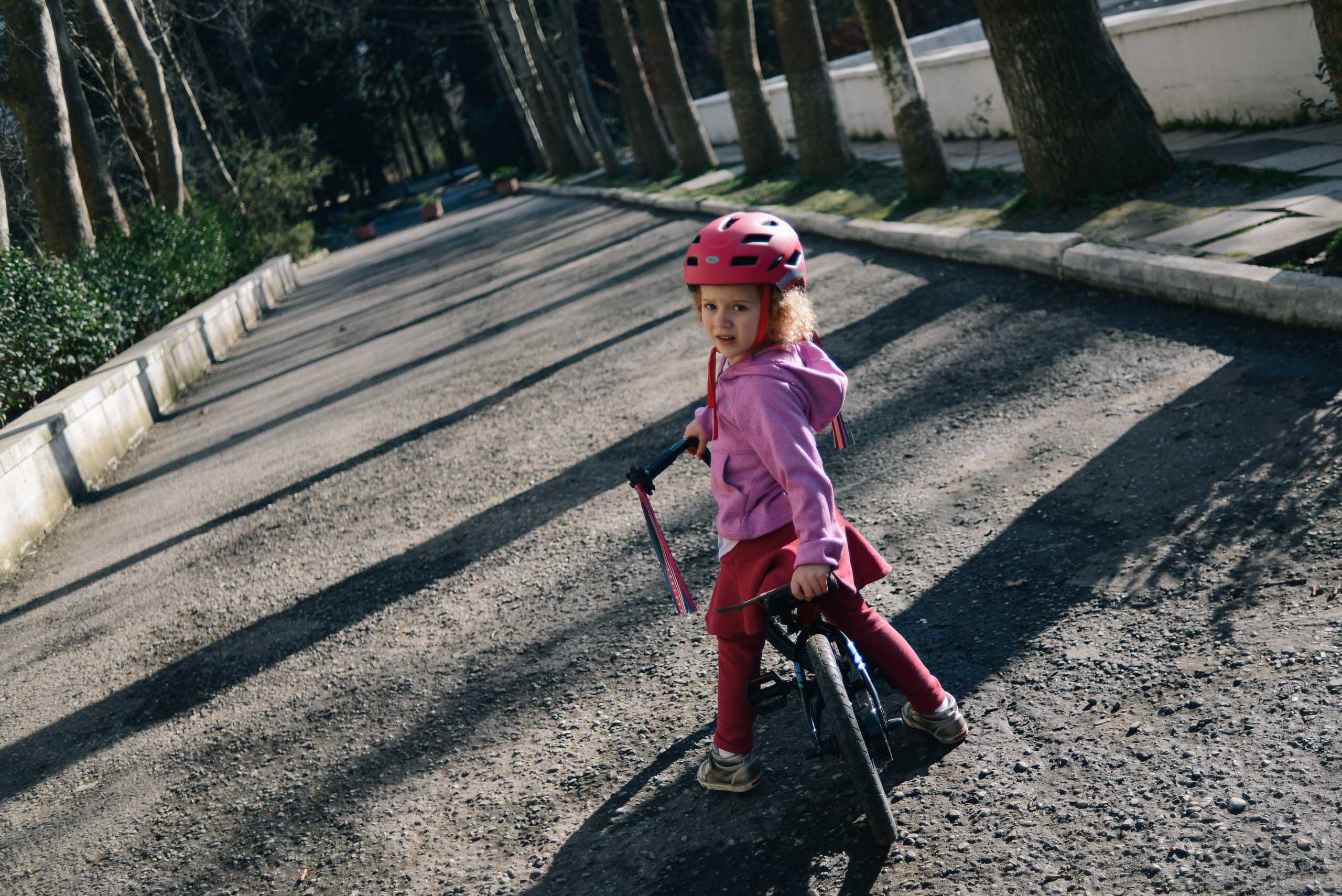 There’s a big sign at the entrance which says no bikes allowed, but we walked right past it while carrying Idara’s bike and nobody said a thing. Maybe our luck will change, but at least this time Idara was able to ride her bike on the many car-free roads and paths through the garden – much better than riding around in circles inside our apartment.
There’s a big sign at the entrance which says no bikes allowed, but we walked right past it while carrying Idara’s bike and nobody said a thing. Maybe our luck will change, but at least this time Idara was able to ride her bike on the many car-free roads and paths through the garden – much better than riding around in circles inside our apartment.
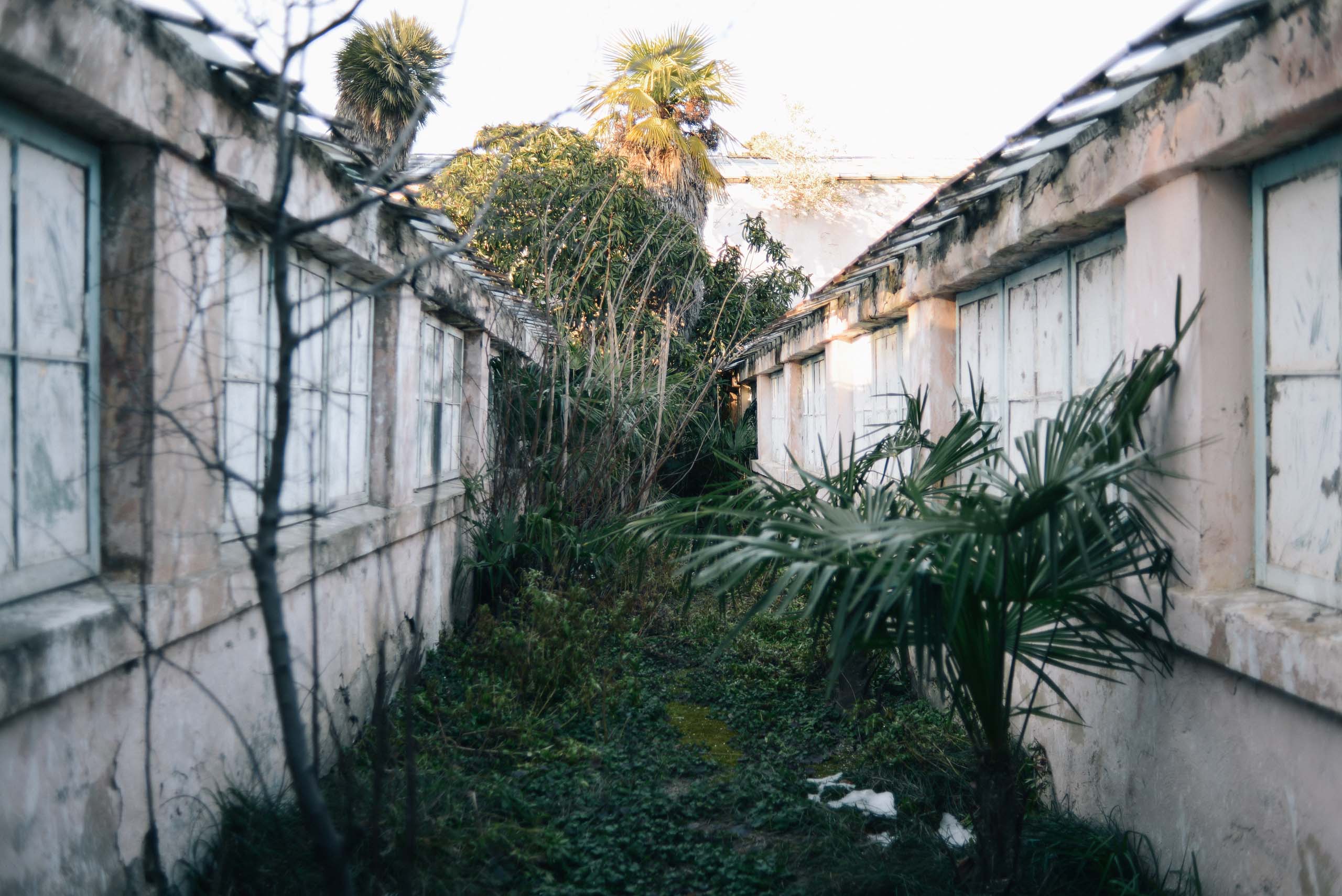 Many of the old and superficially-neglected buildings have a “secret garden” look to them.
Many of the old and superficially-neglected buildings have a “secret garden” look to them.
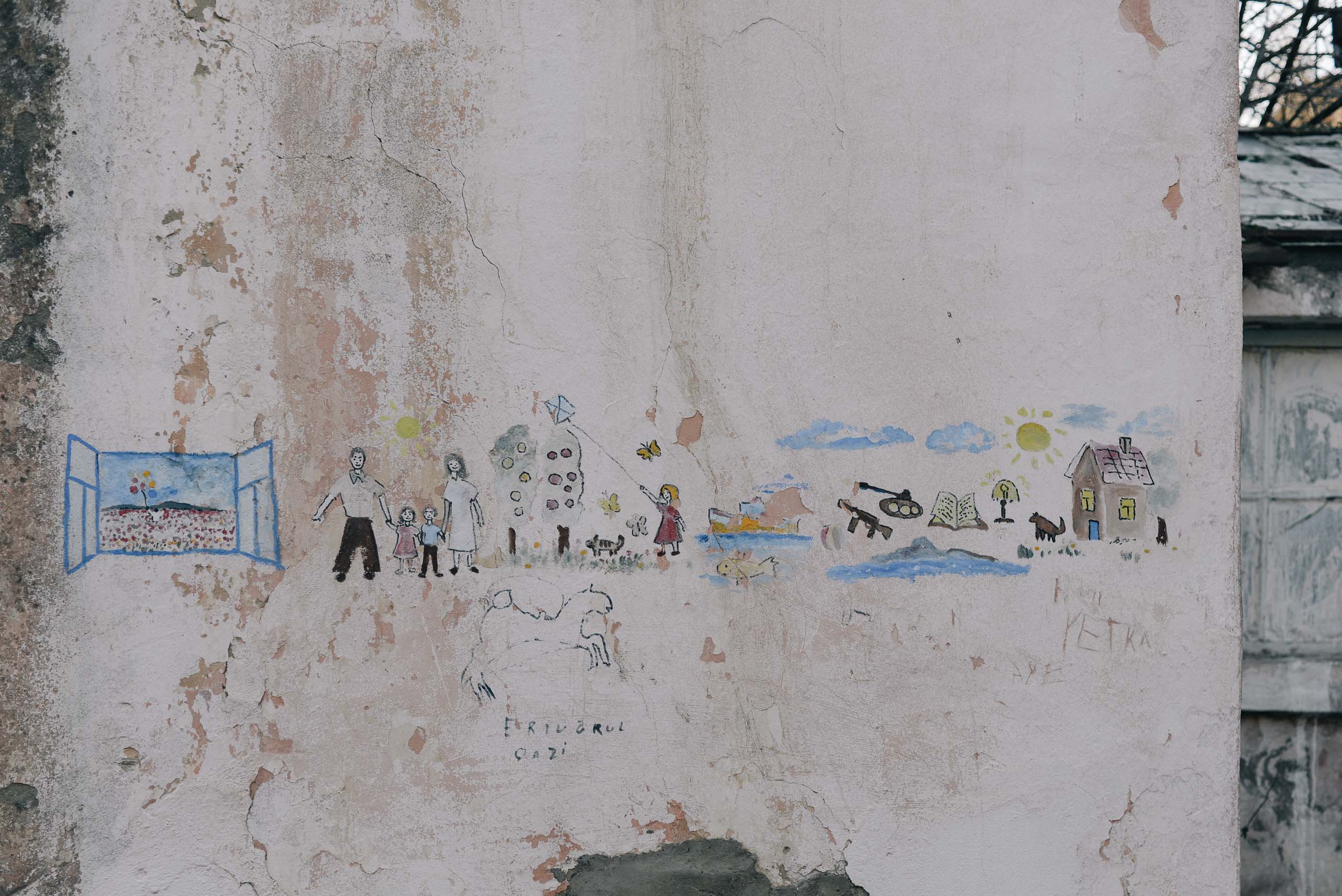 “Let’s see, I think I’ll draw a family holding hands, a girl flying a kite, some butterflies and kittens, and a kalishnakov and a tank.” In all seriousness, I couldn’t help but wonder if this small mural was meant to depict one of the many tragic events of Azerbaijan’s history.
“Let’s see, I think I’ll draw a family holding hands, a girl flying a kite, some butterflies and kittens, and a kalishnakov and a tank.” In all seriousness, I couldn’t help but wonder if this small mural was meant to depict one of the many tragic events of Azerbaijan’s history.
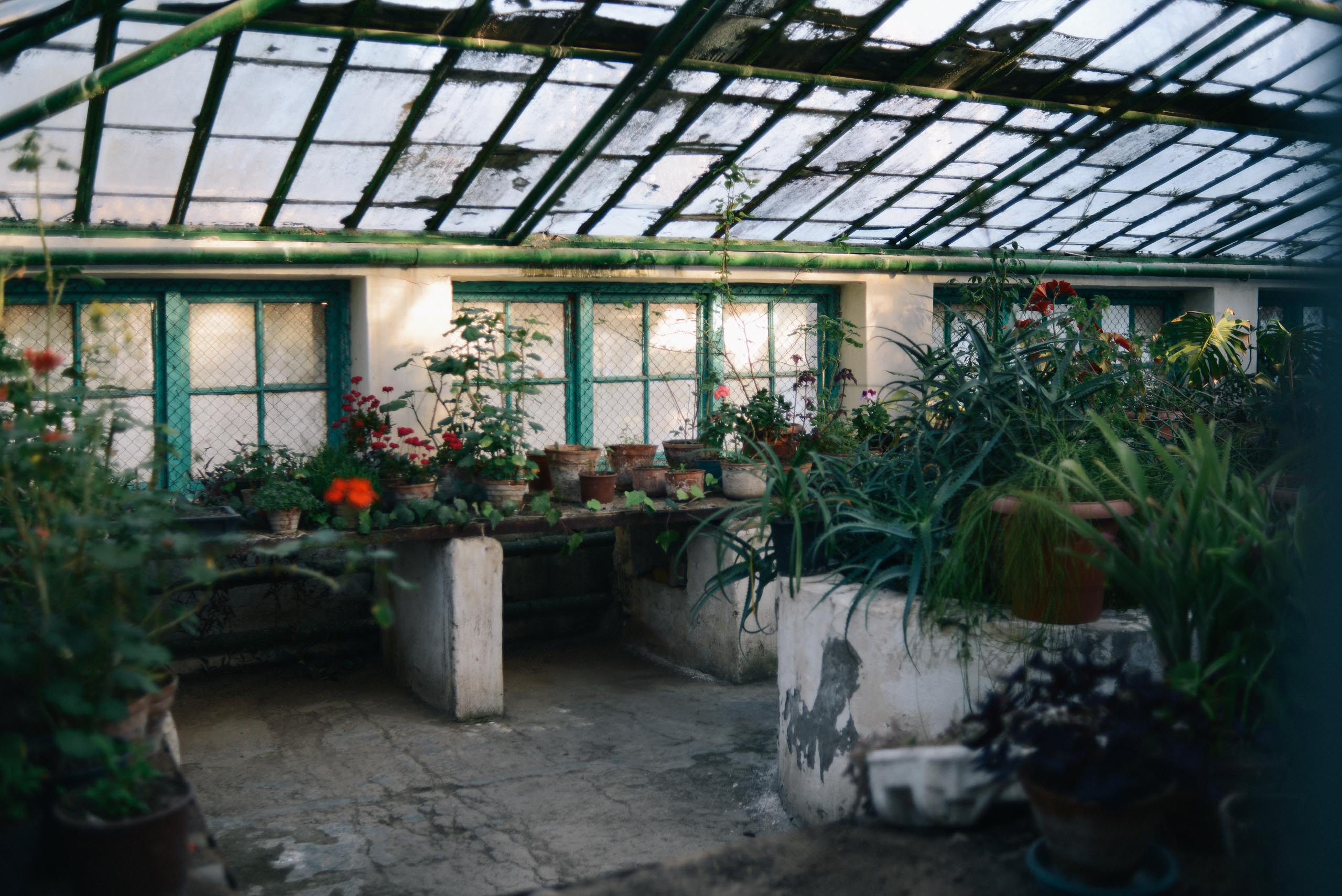 There are several greenhouses on the property but all of them are locked. Perhaps they only open when things pick up in the spring and summer (during our visits so far in February we’ve been some of the only people there). In addition to being locked, several of the greenhouses have had their windows painted white, making it impossible to see in. This one had a broken pane. I couldn’t see inside myself, but I was able to reach up and put my camera through to take this picture. I found tables overflowing with very healthy-looking plants, and imagined what it might be like to be inside its warm, humid air on a cold, windy day.
There are several greenhouses on the property but all of them are locked. Perhaps they only open when things pick up in the spring and summer (during our visits so far in February we’ve been some of the only people there). In addition to being locked, several of the greenhouses have had their windows painted white, making it impossible to see in. This one had a broken pane. I couldn’t see inside myself, but I was able to reach up and put my camera through to take this picture. I found tables overflowing with very healthy-looking plants, and imagined what it might be like to be inside its warm, humid air on a cold, windy day.
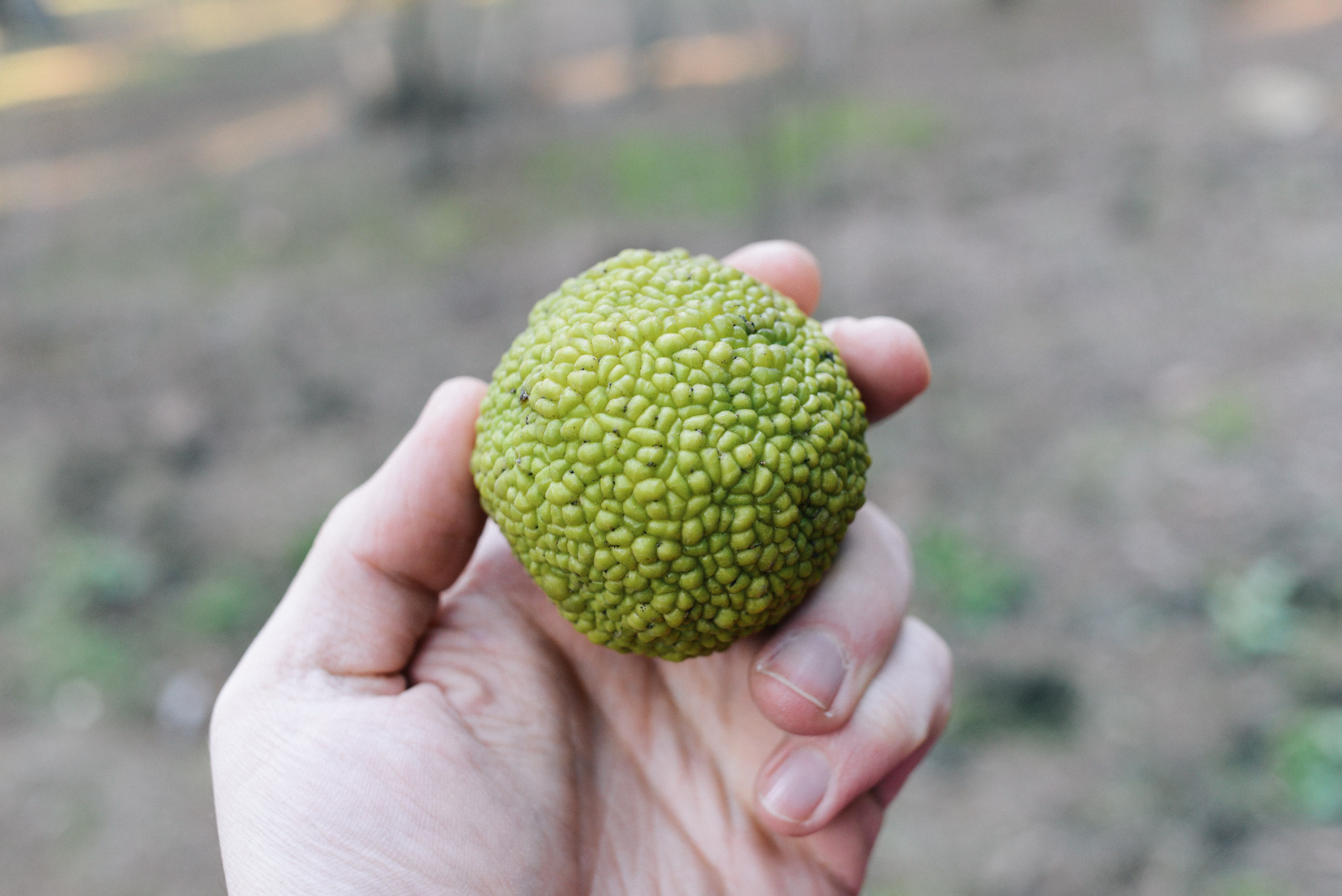 Apparently this is called a Horse Apple. Wikipedia tells me that it’s used as a hedge in the United States but I’d never seen one before.
Apparently this is called a Horse Apple. Wikipedia tells me that it’s used as a hedge in the United States but I’d never seen one before.
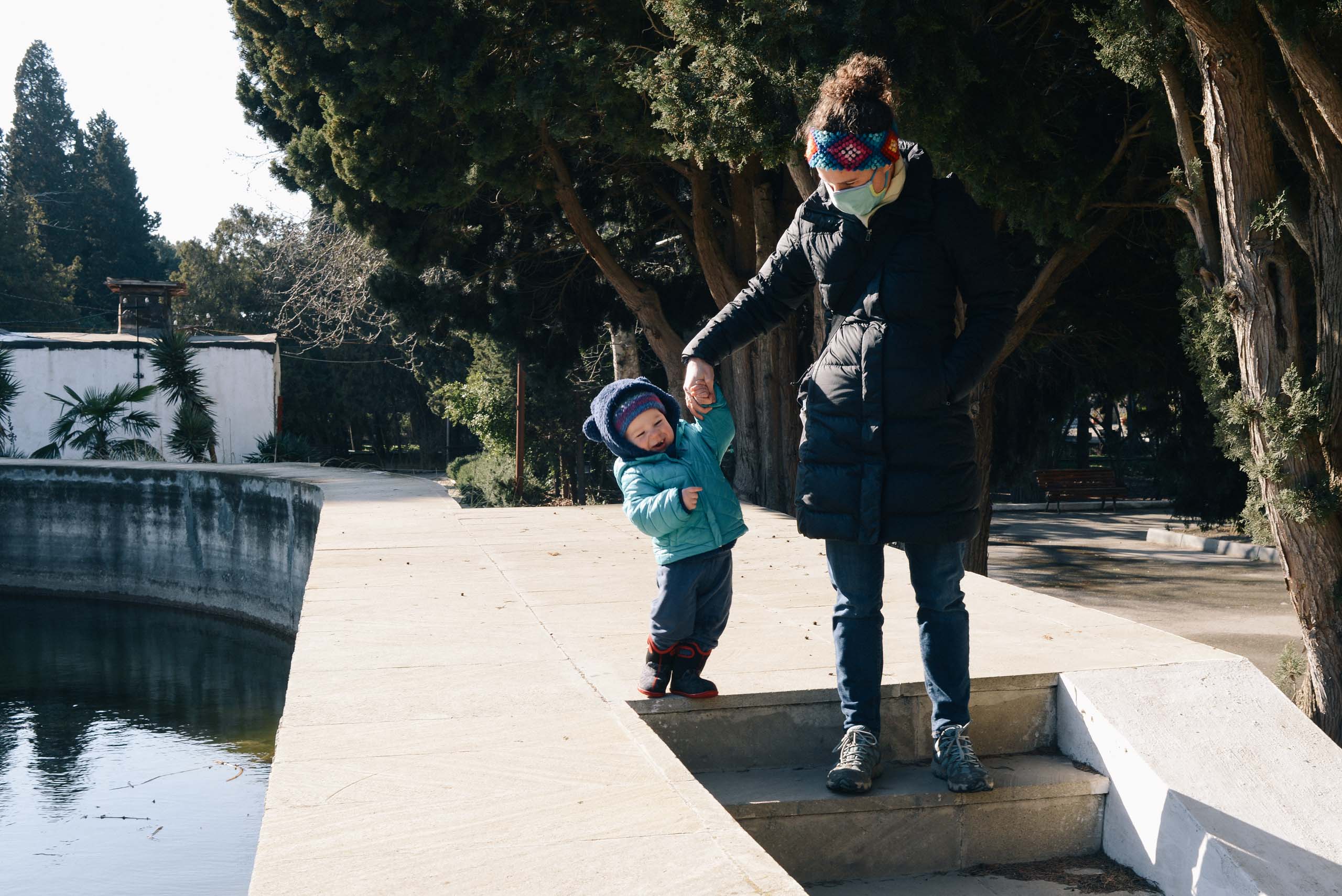 There are several concrete ponds on the property, and some of them even have fish.
There are several concrete ponds on the property, and some of them even have fish.
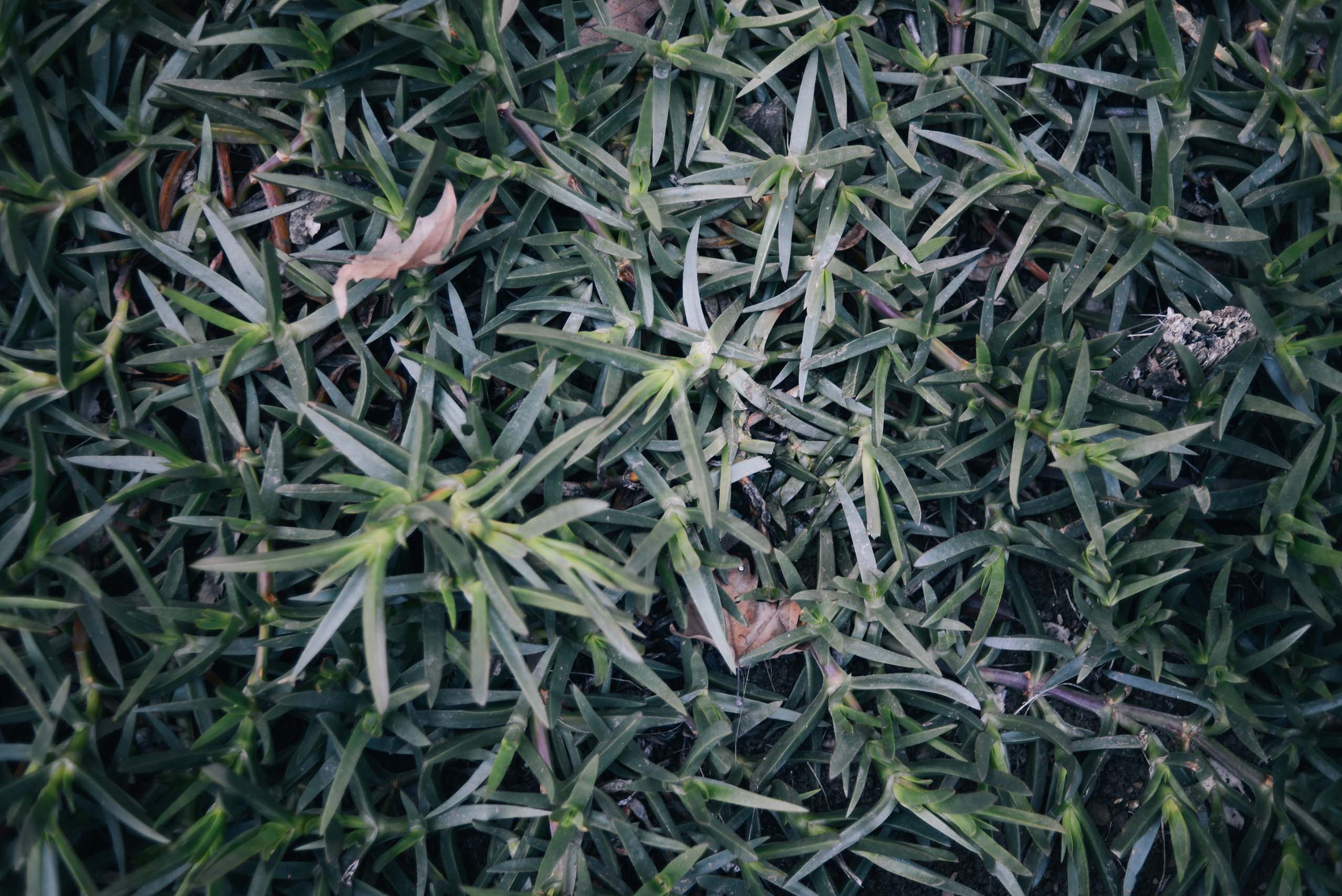 This plant, native to South Africa, is called “pigface.” In addition to turning up its name, the internet also tells me that it’s edible, and tastes like salty apples.
This plant, native to South Africa, is called “pigface.” In addition to turning up its name, the internet also tells me that it’s edible, and tastes like salty apples.
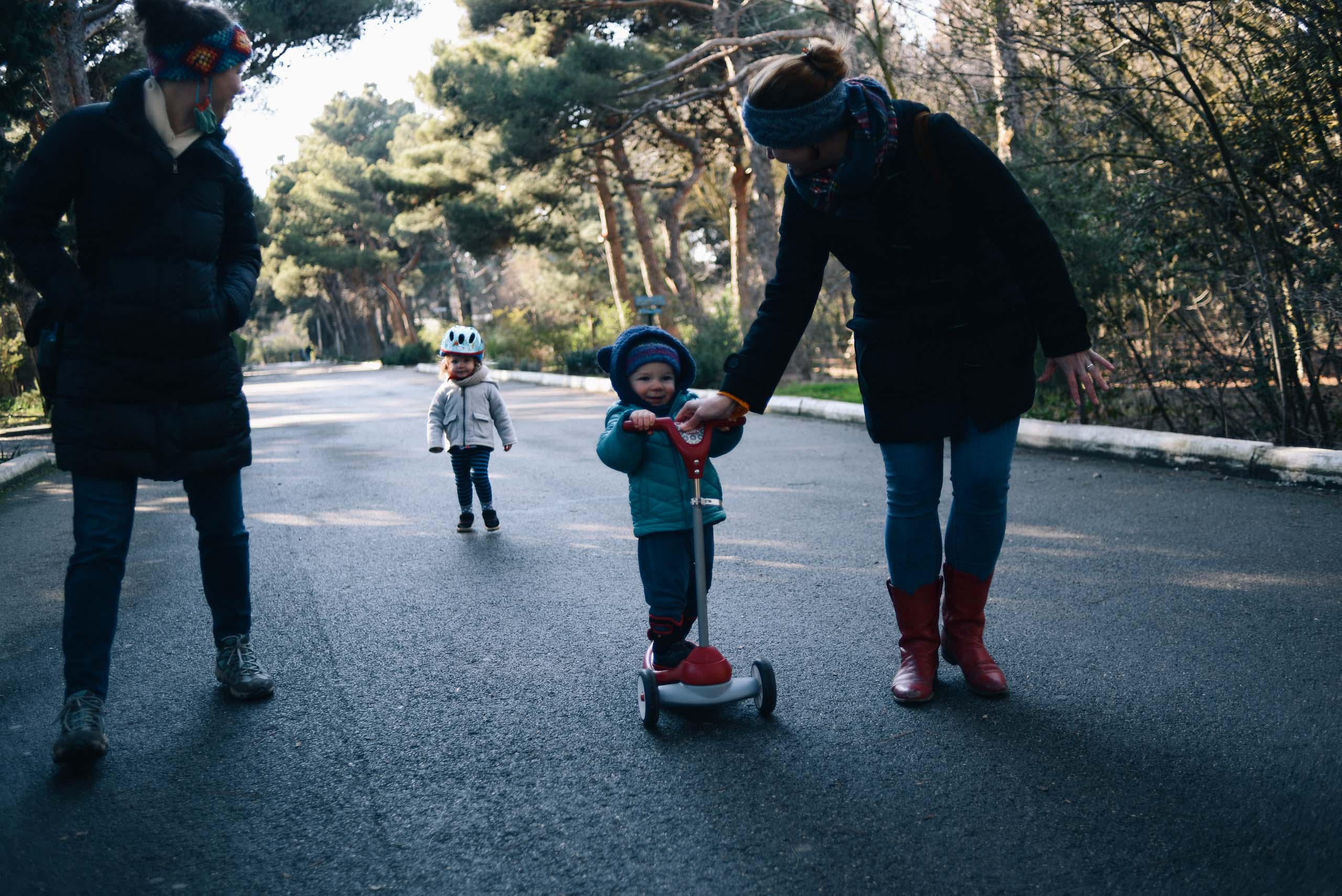 Oren scooting.
Oren scooting.
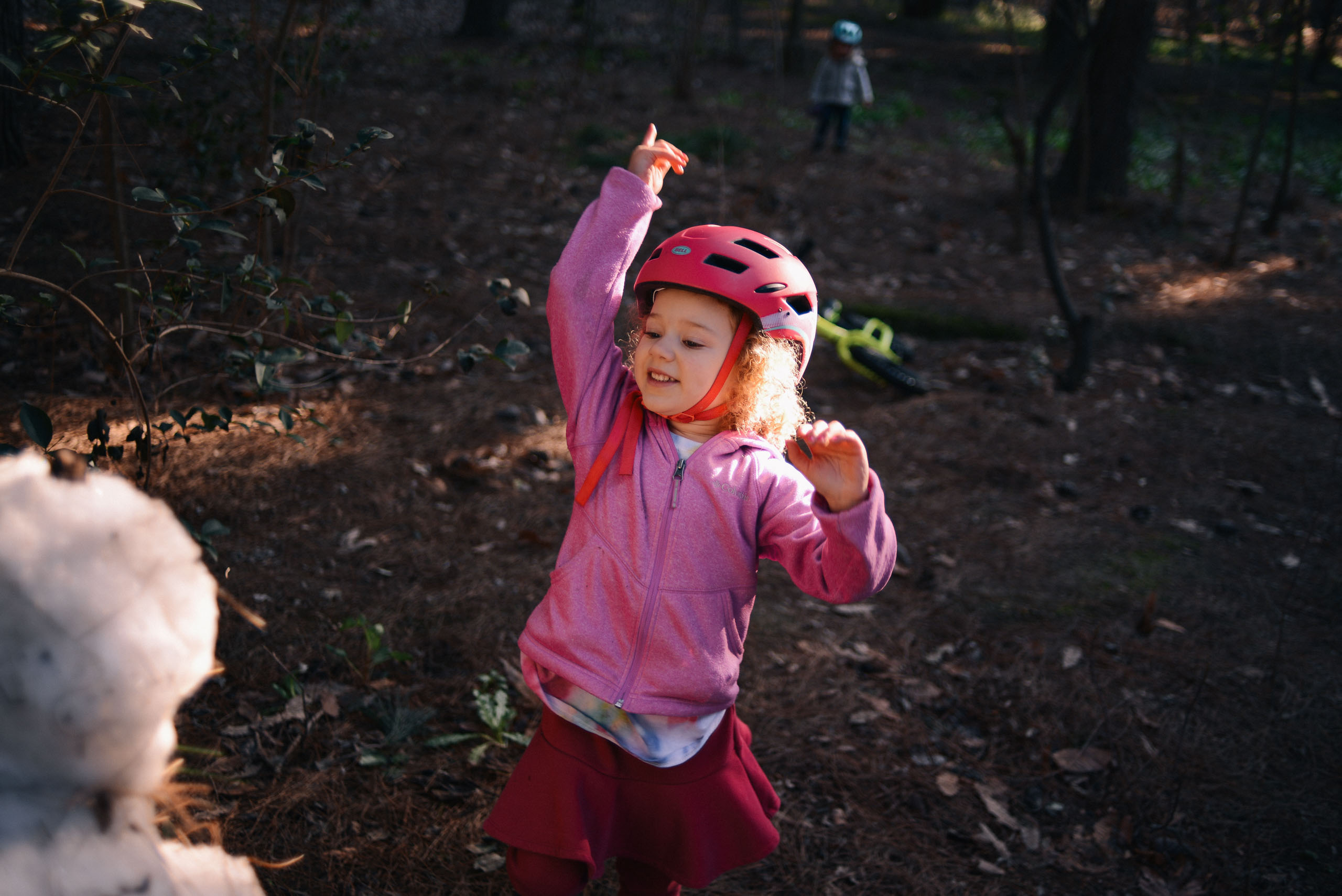 A blizzard had descended upon Baku only a few days prior, and while most of the snow had already melted, we still found a couple of neglected snowmen off in the trees.
A blizzard had descended upon Baku only a few days prior, and while most of the snow had already melted, we still found a couple of neglected snowmen off in the trees.
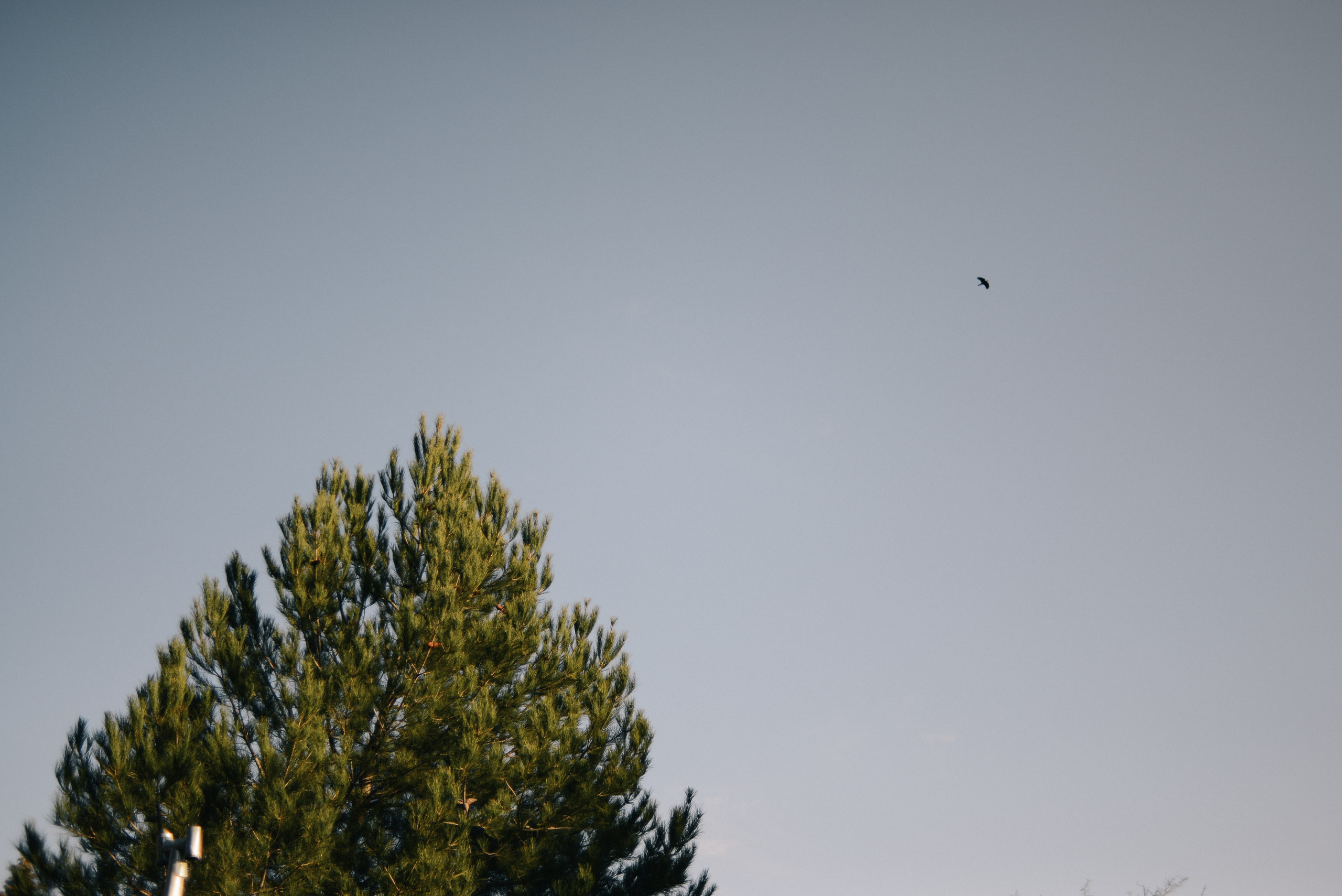 Pick any tree in Baku and there’s a good chance it’s a mondell pine, known for its ability to grow in poor soils in harsh environments. Pick any bird and there’s a good chance it’s a hooded crow, known for attacking papal peace doves.
Pick any tree in Baku and there’s a good chance it’s a mondell pine, known for its ability to grow in poor soils in harsh environments. Pick any bird and there’s a good chance it’s a hooded crow, known for attacking papal peace doves.
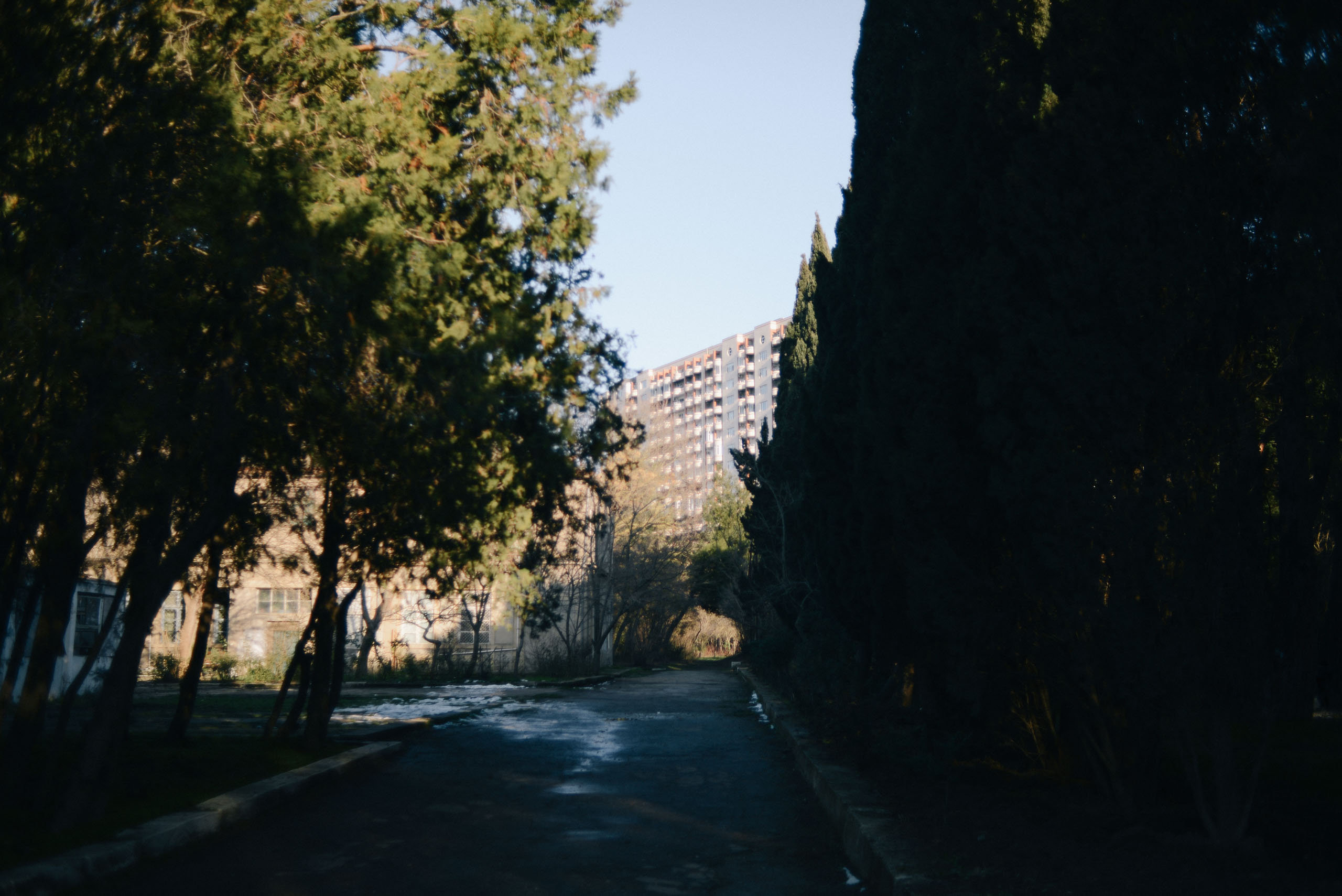 As I said above, there are small reminders all around that you’re still in the city.
As I said above, there are small reminders all around that you’re still in the city.